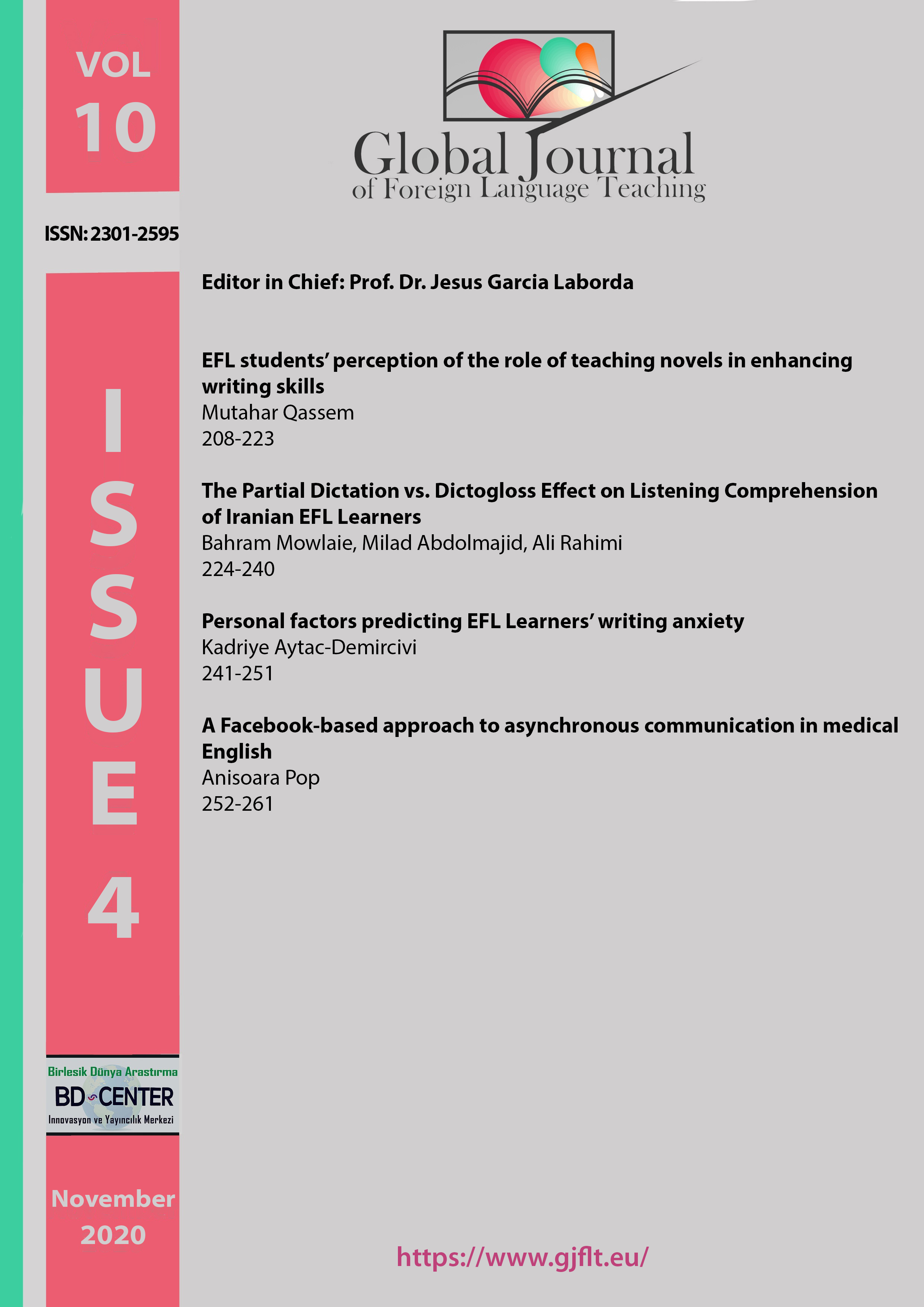A Facebook-based approach to asynchronous communication in medical English
Main Article Content
Abstract
Background: Social media are widely used in informal communication, but how about in professional
communication? This study reflects on a task-based action research intervention focusing on asynchronous Facebook (FB)-integrated professional communication for Medical English (ME). The purpose of the study was to understand if and how FB-integrated learning could be successfully customised to Medical English in order to provide further asynchronous communication to medical students and to evaluate their opinions in terms of its “usefulness” and “satisfaction”. Methods: Online class observation, rubric-based assessment of students’ productions, a Google form questionnaire and informal class discussions were selected for data collection. Main Argument: Specific Medical English task elements (peer evaluation) and factors (communication versus accuracy) could influence the students’ performance, satisfaction, and motivation in FB-based ME communication. Conclusion: Incorporation of Facebook-integrated communication was a quantitatively (democratic participation) and qualitatively (comfort of asynchrony) positive experience in ME blended learning.
Keywords: asynchronous speaking, Facebook, Medical English, professional communication, social media;
Downloads
Article Details

This work is licensed under a Creative Commons Attribution 4.0 International License.
Authors who publish with this journal agree to the following terms:- Authors retain copyright and grant the journal right of first publication with the work simultaneously licensed under a Creative Commons Attribution License that allows others to share the work with an acknowledgement of the work's authorship and initial publication in this journal.
- Authors are able to enter into separate, additional contractual arrangements for the non-exclusive distribution of the journal's published version of the work (e.g., post it to an institutional repository or publish it in a book), with an acknowledgement of its initial publication in this journal.
- Authors are permitted and encouraged to post their work online (e.g., in institutional repositories or on their website) prior to and during the submission process, as it can lead to productive exchanges, as well as earlier and greater citation of published work (SeeThe Effect of Open Access).
